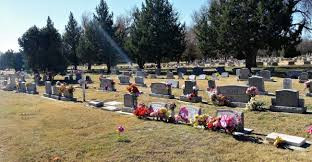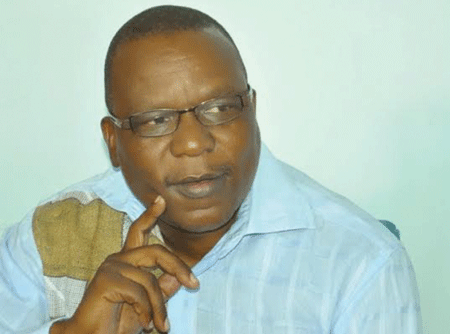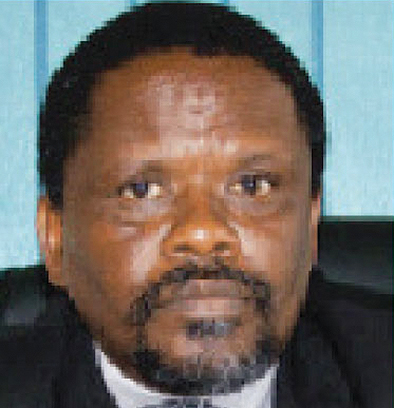
Hebrews 11 vs 21: “By faith Jacob, when he was dying, blessed each of the sons of Joseph, and worshiped, leaning on the top of his staff.” Jeremiah 6 vs 16, Thus says the Lord: “Stand in the ways and see,
OPEN HEAVENS with Bishop Colin Nyathi
And ask for the old paths, where the good way is. And walk in it; Then you will find rest for your souls…”
Genesis 27 vs 34: “When Esau heard the words of his father, he cried with an exceedingly great and bitter cry, and said to his father, “Bless me-me also, O my father!”
In dealing with this subject of blessing, we will uncover one of these “old paths”. A “good way” that has become overgrown with thistles and thorns from years of neglect.
Let me ask you a question: Have you ever compared yourself unfavourably with others? Have you ever looked at another person — someone with wholeness, well-being, stability, graciousness — and wondered… “… if all is well” why am I not like him or her? Why do I never feel that I am “good enough”? “Why do I never measure up?”
If so, this is a fairly certain indication that your pathway to promise has been blocked to some extent by the thorns and briars of abusive words and curses in your life.I believe that the level of emotional stability that we enjoy is linked to the amount of verbal blessing we received in childhood. “Can an ancient pathway of truth lead us to wholeness?”
“If so, is it possible to discover it and tear away the thorns and weeds and prickly bushes that block our way?” The answer on both counts is “yes!” Together we will discover the life-changing ancient pathway of the spoken blessing.
- Chamisa under fire over US$120K donation
- Mavhunga puts DeMbare into Chibuku quarterfinals
- Pension funds bet on Cabora Bassa oilfields
- Councils defy govt fire tender directive
Keep Reading
“The Iniquity of the Fathers.” (Generational Fallout)
Exodus 34 vs 6-7,vs 6, “And the Lord passed before him and proclaimed, the Lord, the Lord God, merciful and gracious, long-suffering, and abounding in goodness and truth…” “… keeping mercy for thousands, forgiving iniquity and transgression and sin, by no means clearing the guilty, visiting the iniquity of the fathers upon the children and the children’s children to the third and the fourth generation.”
We develop our character, personality and conflicting styles in the settings in which we are raised. If we are raised in a healthy environment that is filled with love, acceptance, forgiveness, mutual respect and openness, chances are pretty good that we will become well-balanced adults.
We would also leave children and grandchildren who are emotionally well-balanced, free from having to rewrite the tragedies that we left for them.
If, however, our care givers never resolved their own life issues, they simply unpack the baggage from their care givers and pile it onto us. Generation after generation, people live out someone else’s story and come to life’s end without a final resolution to their conflicts (demons).
As a result, the curtain never closes on the stage, and generation after generation must deal with the same issues (devils).The Bible has a name for these unending tragic stories. In scripture, they are called “generational iniquities”.
Exodus 34vs7, “…keeping mercy for thousands, forgiving iniquity and transgression and sin, by no means clearing the guilty, visiting the iniquity of the fathers upon the children and the children’s children to the third and the fourth generation.”
Notice that actions requiring forgiveness in verse 7 are broken down into three areas: a) Iniquity; b) Transgression; and c) Sin.
Sin means missing God’s standard. Transgression is a wilful stepping aside from God’s law.Iniquity is often caused by a bruise from the past that has festered and is now spoiling our purpose and destiny. (It is iniquity that is passed down from one generation to the next).
Psychologists classify unresolved family conflicts as trans-generational verbal abuse. Dr Ketterman (a psychologist) observes that the tragedy of abuse is a repetitive pattern through succeeding generations and over a broad range of life situations.He (Dr Ketterman) further says children who were verbally abused are more than likely to abuse their peers, siblings and teachers.
As they mature, they will probably abuse their spouses, fellow employees, or bosses or those they supervise.
Forms of Trans-generational Verbal Abuse ●Degrading (minimising the worth and value of another person through casting shame and ridicule).
●Terrorising (threatening physical harm if expectations are not met, removing the safety of unconditional love and acceptance out of a relationship).
●Exploiting (modelling and mentoring control, manipulation and power over the will of another for the abuser’s own benefit).
●Rejecting (closing the door of relationship with another in order to gain a temporary sense of power and control).
●Corrupting (accusing another of behaviours with low value to the point that the person begins to act them out. If a young girl is called a whore long enough she may well become one).
●Isolating (separating a person from social interaction with others, gaining a sense of power through the confinement and boundaries placed on another).
●Neglecting (overlooking and minimising the most basic of life needs, health care, emotional needs and educational needs).
Perhaps these words about trans-generational abuse are painful for you and you are a victim and you are crying out like Esau.
Genesis 27 vs 34,“When Esau heard the words of his father, he cried with an exceedingly great and bitter cry, and said to his father, “Bless me-me also, O my father!”
The pathway toward healing our generational wounds starts by recognising that the things that have happened to us are not the last word on who we are.God has always designed to work across generations. He is the God of Abraham, Isaac and Jacob! Abraham, the first in God’s family, was called to cover, bless and protect his son Isaac.
Isaac was responsible to bless the generation that would come after him (and so are you). That is the divine order of things!
Each generation is to nourish and protect the following generation.
“I won’t let you go unless you bless me!”
Genesis 32 vs 26,And He said, “Let Me go, for the day breaks.” But he said, “I will not let You go unless You bless me!” The name Jacob means “surplanter” or “deceiver”. When he (Jacob) and his twin brother, Esau were struggling in Rebekah’s womb, God said to her …
Genesis 25 vs23, And the Lord said to her: “Two nations are in your womb, Two peoples shall be separated from your body; One people shall be stronger than the other, And the older shall serve the younger.” God had already determined that Esau would be the first born.In Genesis 25 vs 27-28, the Bible says, “And Isaac loved Esau because he ate of his game.”
I can only imagine the heartbreak in Jacob’s soul when he realised that his father loved Esau more than him.Years later, after being rejected by his father and his brother, and both deceived and rejected by his father-in-law, I can imagine that Jacob was dead serious when he said to God: “I will not let you go unless you bless me!”
Jacob received a blessing from the Lord Himself and had his name changed from deceiver to Israel, which means “prince with God”.
Jacob’s wrestling match with God brought a moment when he was healed of the wounds that come from being rejected. It was also the moment when he set aside the building blocks of his life and self-sufficiency. His struggle with God and man was over, he was on his way to wholeness.
Though our paths might differ, our quest for verbal blessings are just as desperate as Jacob’s.
●Bishop Colin Nyathi is a Senior Pastor and Founder of Harvest House International Churches









